Tastes Like Mangoes: Collectively Resisting Kakistocracy (a system of government which is run by the worst, least qualified, or most unscrupulous citizens)
Dear Readers & Listeners,
For those of you who find my work tantalizing, or at the very least entertaining or informative, please consider supporting my writing on a monthly or annual basis. Thank you.
The struggle makes us whole…
—Altheia Jones-LeCointe, The British Black Panthers & The Mangrove Nine
As our family lay cuddling on the morning of Zazu’s departure from home and return to Arthur Morgan School, I remember seeing a video about a mother who breast fed all of her many children past the age of five. In a thick British accent, her eight-year-old daughter exclaimed her mother’s breast milk was particularly delicious. “Tastes like mangoes!” the girl declared. (If any of you can find this video, please let me know—it really is ridiculously funny). I breastfed Zazu until his 4th birthday, my 44th birthday.
Me breastfeeding Zazu (years before we weaned).
Immersed in Oakland’s Reproductive Justice scene within the Occupy Movement, our breastfeeding (including ongoing public Nurse-Ins) was both deeply personal and explicitly political. In my chapters: “Vulnerability and the Politics of the Imagination” and “Rhizomatic Vulnerabilities for Radical Citizenship,” in Viscous Expectations: Justice, Vulnerability, The Ob-scene, my interdisciplinary philosophy art book, I describe these encounters in detail (pp.183-185, Endnote 276, pp.441 449).
Xandrea and I breastfeeding Ari and Zazu
I share these stirrings because I am acutely aware of boundaries, the private seeping into the public; the personal expanding into the political, thus enlarging the political; my lifelong compulsion to support vulnerabilities, discover intimacies, and weave these connections through conventionally unexpected territories.
In response to my essay Appalachian Apocalypse: My Son Caught By the Eye of the Storm, many readers wanted to know how Zazu was doing following Hurricane Helene. My essay was translated into Spanish on A Planeta here. Some of you wanted to know how he was feeling—what his perspectives were and what I learned from Zazu. His friendships were at the core of how he understood the outrageous storm and community disaster relief through networks of care. You may find connection in Zazu’s drawing and essay I include in: “Promiscuous Crossings: A Foot in Both Worlds.”
I am reminded of our misadventures when Zazu and I traveled to the Voodoo community in Ouidah, Benin, West Africa two years ago (actually, exactly two years ago today!). In my reflections I wrote: “I am thinking now about Roberto Benigni's comedy drama about the father and son Auschwitz victims in the Oscar-winning film “Life is Beautiful.” The father, Benigni, does everything he can to shield, entertain, and feed his son so that he thinks the extermination camp is some kind of play…” Because he was surrounded in Asheville by friends and gracious families who did not wait for FEMA or state-of-emergency federal support but took immediate action to directly help one another throughout their local communities, Zazu felt resourced and ready to take responsibility with his new community.
Following news of Hurricane Helene, Wild and I were immediately planning to drive to North Carolina to get Zazu, but our plan was thoroughly discouraged, and, in any case, all roads were impassable. The day Asheville’s airport opened, Zazu took an emergency flight home to Colorado. Much to Zazu’s delight, the very next morning we drove across the Rockies to a dog shelter and were thrilled to include Cocomiso (an Alaskan malamute husky and the name of one of the main characters in Zazu Dreams) as a new member of our family. (Zazu unexpectedly lost Mac, his 14-year-old golden-doodle brother earlier this summer).
When he returned to Arthur Morgan School Zazu’s teachers asked him to write about his experiences, this is part of what he wrote—perhaps not the trauma-response we would expect:
A Short Story From My Visit To Colorado Over The Loooong, Looong Weekend
The day we got my 11-month-old, 79-pound malamute husky, we took him to a hot springs. He almost never barks, and he is a very well-behaved puppy, already knowing how to sit most of the time and is a very quick learner. He is also very big, well above my waist, and he has velvet-soft, floppy ears. Anyway, we brought him to a hot springs. To get to the actual hot springs, you have to navigate down a steep climb. As soon as we got to the river, he started sprinting top speed in tight, uncontrolled, frantic, circles. His paws splashed, spraying and mixing the water of the cold creek and hot water in the surprisingly dry, sharp air.
Zazu and Cocomiso on our way home from the Eagle County Animal Shelter the day after Zazu returns to our family following Hurricane Helene.
I witness Zazu. Then I hear from a friend this morning (November 10): “People are still in shock, traumatized. The highways are still full of trucks and machinery on their way to some broken area. There is so much dust. We are still in a drought. Huge debris pile fires and diesel exhaust. No one says anything about climate change. More confederate flags now. Kinda like “Lord of the Rings” but with Kid Rock doing the soundtrack.”
Invoking the glorious spirit of I, Rigoberta Menchú: An Indian Woman In Guatemala, I am not the anthropologist swooping in and subsuming the voices of those “under examination.” Yet, how am I to metabolize these different perspectives?
One of you, a dear colleague and friend, responded to my essay last month with the following:
I really appreciate your personal and self-critical reflections, how you are willing to make yourself vulnerable, another object of investigation. Your theoretically-informed yet emotionally-open thinking makes your writing such a multidimensional pleasure to read (for me, at least). I will say, though that I feel your characterization of what you have taught Zazu, coupled with your closing implied argument—that maybe Zazu has come to appreciate your kooky, off-grid choices due to his own existential-visceral experience of climate catastrophe, i.e., that you were right—strike me as a wee bit too self-serving. I would have preferred that you give Zazu and his perspective more space, more empathy. For instance, I tried to teach him x, y & z...The I-told-you-so ending tells me that you are still "the teacher" and he merely "the pupil," that for all your anti-establishment attitudes and actions, you are still not fully granting him the respect of autonomy, the freedom to self-discovery, etc.
A few days after digesting my friend’s response to Appalachian Apocalypse, I find myself dancing to Sweet Honey in the Rock’s "On Children," adapted from Kahil Gibran's The Prophet:
Your children are not your children;
They are the sons and daughters of
Life's longing for itself.
They come through you
but they are not from you
And though they are with you
They belong not to you.
You may give them your love
but not your thoughts,
They have their own thoughts.
They have their own thoughts.
You can house their bodies but not their souls,
For their souls dwell in a place of tomorrow,
Which you cannot visit,
not even in your dreams.
You can strive to be like them,
but you cannot make them just like you.
Strive to be like them
but you cannot make them just like you
Your children are not your children;
They are the sons and daughters of
Life's longing for itself.
They come through you
but they are not from you
And though they are with you
They belong not to you.
You may give them your love
but not your thoughts,
They have their own thoughts.
They have their own thoughts.
You can house their bodies but not their souls,
For their souls dwell in a place of tomorrow,
Which you cannot visit,
not even in your dreams.
You can strive to be like them,
but you cannot make them just like you.
Strive to be like them
but you cannot make them just like you
Although I am grateful for these reflections, I have been somewhat (not fully, this time!) tormented by these lyrics and by my colleague’s suggestion that my parenting is self-serving. What does it mean to parent in the 21st century? Specifically, a teenage boy in 2024—caught by the eye of the storm? Where is the line between creatively, urgently responding to local and global emergencies and attempting to control (i.e. protect/ support/ nourish) our children?
Just before and after I turned ten-years-old, I loved the TV show, ”Kids Are People Too.” I didn’t just crave it; I needed it for my survival. Gathering my Snoopies every week in front of our ten-inch black and white tube, “Kids Are People Too” was central to how I developed my personal-political hashkafah, my worldview.
The Sudbury educational methodology comes to mind—a democratic, free-school model that emphasizes Self-direction. It focuses on community connection and adults doing what they love alongside the kids. It offers “pedagogic freedom and child-centered learning…children's play and curiosity and independent thinking” (Jonathan Kozol). However, the Sudbury school was founded in 1968. Since then, our socio-political environment has so radically deteriorated due to the pervasiveness of Big Tech, Big Pharma, Big Ag, Big Banks reflected by compulsory education, Big Ed, and all forms of mass media. Most of us are so desperately complicit with our own demise in ways that are infinitely more subtle and surreptitious than the rush of courageous empowerment coursing through much our global histories. In the context of ubiquitous digital technologies and the resulting mental-health crisis, “independent thinking” bleeds too easily into manufactured consent and the construction of desire. See my articles: Techno-Dystopias Breed Children as Collateral Damage and The Global Electrical Circuit: Enabling the Digital Epidemic.
My former professor, Jacques Rancière’s exploration of equality-as-assimilation in The Ignorant Schoolmaster: Five Lessons in Intellectual Emancipation also comes to mind. Viscous Expectations, my 2013 book explores the precarious concept of equality as the result of constructed desire—in this case, our culture’s self-destructive perilous obsession with screen technology. I write:
Media-saturated fear politics form and sustain ‘need,’ ownership, and entitlement. This fictional consciousness, as Frantz Fanon states, ‘seeks to equate all differences with itself.’ The fantasy of equality, in which equality is reduced to homogeneity, ‘presents itself as ‘natural’ while being laden with the values, hopes and desires of the dominant social order’ (Chela Sandoval, Methodology of the Oppressed, 120.1) Roland Barthes’ exploration of equality-as-sameness intersects with Rancière’s discussion of the Ignorant Schoolmaster: ‘Equality…is neither given nor claimed; it is practiced, it is verified’ (1991: 43). Equality becomes conformity. Equality manifests as assimilation, toxic mimicry.
Rancière’s discussion of the Ignorant Schoolmaster vividly demonstrates the possibilities of unlearning universalized hierarchical superstructures. We realize that knowledge is not necessary to teaching, nor explication necessary to learning. ‘Explication,’ he writes, ‘is the myth of pedagogy.’ Rather than eliminating incapacity, explication in fact, creates it’ (1991: xx). Our addiction to taxonomies and habits refuses “the intelligence sleeping in each of us” (1991: 21).
Yet, I sense that intelligence is being profoundly obfuscated.
I write in the Guide to Zazu Dreams: Between the Scarab and the Dung Beetle, A Cautionary Fable for the Anthropocene Era, my cross-cultural, climate justice book:
In [the] documentary film, “The Corporation,” Noam Chomsky describes how profit-driven institutions begin to instill consumer-values at infancy. Ray Anderson, CEO of Interface, the world’s largest commercial carpet manufacturer, calls corporate motivation a form of ‘intergenerational tyranny.’ Since children are at the root of sustaining commercially-mediated relationships that maintain how big business functions, shouldn’t educators, activists, academics, parents, and those who oppose the monoculturalization of our minds (Vandana Shiva) address children directly? Branding and advertising certainly do. Lucy Hughes, Vice President for Initiative Media and co-creator of “The Nag Factor,” proudly declares that Initiative spends $12 billion of media time to encourage children to ‘nag’ their parents into buying products, home videos, fast food and attending movies, theme parks, and ‘places like Chuck E Cheese.’ Initiative Media is the ‘biggest buyer of advertising time and space in the U.S. and in the world.’ She continues: ‘You can manipulate consumers into wanting and therefore buying your products—it’s a game…[today’s children are] tomorrow’s adult consumers, so start talking with them now, build that relationship with them when they’re younger and you’ve got them as an adult’ (cited in “The Corporation”).
Because of our society of overindulgence, advertising through every conceivable realm, and propaganda like the Nag Factor, it seems in large part that adults, parents in particular, have lost our ability to lead, to shape our culture, to gracefully stand up to our own children when they become conduits for corporate manipulation. Given the insidiously seductive nature of industrial-waste civilization, consumer-convenience culture, I have come to realize that apocalyptic parenting—revealing the underlying intricacies of our complicity and possibility to resist—is my only parental option. It is my intifada—“an abrupt and sudden waking from an unconscious state”
(The Design of Dissent, 20). What does waking up abruptly look like, feel like? See Boycott Civilization: MLK, Jr. and Environmental Justice: "Order Before Justice" my essay exploring Martin Luther King Jr.’s Why We Can’t Wait.
In response to Trump’s 2016 election/presidency, my community at EcoVillage Ithaca held numerous “grief gatherings.” Although I grasped the difference between shock and surprise, I was baffled by what felt like my community’s naïve and remarkably entitled response—was our bubble so sanctified? So divorced from the reality around us—converging hegemonies that shape US democracy?
Astead W. Herndon describes this privilege-denial as the “failure of the imagination.” As in 2016, following the news after 2024’s Election Day, I am reminded of our culture’s tendency to be in temporary shock and then snap back-to-biz-as-usual, our habituated obedience. This tokenism tendency echoes Earth Day and Black History Month among dozens of other calendar markers that designate a trendy, temporary recognition of daily reality.
I had thought the election offered an apocalypse; an intifada…Yet, here we are eight years later, confronted with Trump and MAGA's Project 2025 agenda—in so many ways still sedated, cultural somnambulism and hubris at its peak. As I explore the warning-query of my colleague, is my response to those around me another self-serving “I told you so?” Am I gloating or am I invoking the vitality of tzedakah, the Jewish concept of righteousness in the context of Trump's new presidency...how critical it is for us to continue to stand up collectively with those who are most vulnerable to Empire: capitalist, colonialist tyrannical norms?
As for this colleague and most likely many others who feel I am instigating parenting as an attempt to create mini-me’s, I return to Altheia Jones-LeCointe of The British Black Panthers and The Mangrove Nine who proclaimed: “We are the example, we must bear this responsibility.” As I wrote last month, response-ability (the ability to respond) is born from grief. Apocalyptic parenting embodies grief, joy, and courage in equal measure. Apocalyptic parenting is evident throughout time, throughout the world.
Kililili! Ullillee! Kililili! Ullillee! Our ancestral Jews and Muslims across North Africa, Asia, and the Levant, my Sephardic family, ululate with our tongues and our uvulas to express great joy and deep grief: La’am, meaning both/and in Hebrew and Arabic. Similarly, Jack Kornfield writes of specific natives of this land: “Lakota grief was something to be valued. It brought a person closer to God. For when a person has suffered great loss and was grieving, they were considered 'the most holy.' Their prayers were believed to be especially powerful, and others would ask the grievers to pray on their behalf.”
At this point in my story, I need to highlight the ever-looming question: What are the costs of committing yourself to this practice alone? The cost of living in perpetual conflict with dominant societal norms can be devastating to one's own psyche, let alone one's relationships with family, friends, and colleagues. The isolating mother/teacher-child/student dynamic amplifies those tensions even more. In 1981 Toni Morrison declared, “We don’t need any more writers as solitary heroes. We need a heroic writers’ movement: assertive, militant, pugnacious.” Ashkenazic biologist Scott Gilbert asserts the criticality of familywork, the radical impact of symbiotic relationships. Tibetan Shambhala Buddhism asserts that to experience the depths of one’s spiritual potential, one cannot go on a journey alone; one must practice within a community (even if that community consists of simply one other person—reminiscent of Chavruta meaning “fellowship” in Hebrew).
Enter community organizer, banished for bashing boundaries, illusions of the separate self—enter Adam’s first wife: orgiastic goddess, mango-lover (well, pomegranate-tempter), slayer of hegemonies, defiant of patriarchy, of fascist dictatorships, of Margaret Thatcher's hyper-normalization of TINA (“There Is No Alternative”)[1] and Trump’s incipient Insurrection Act.[2]
Enter Lilith…
[1] Through pernicious deregulation and market fundamentalism, TINA represents the power of neutralizing the social imagination. “There is no alternative” originated with nineteenth-century liberal political, theorist Herbert Spencer.
[2] President-elect’s deployment of the Insurrection Act will target “the enemy within.” In a battle with the Department of Defense, Trump is calling to direct the US military against “radical left lunatics.”




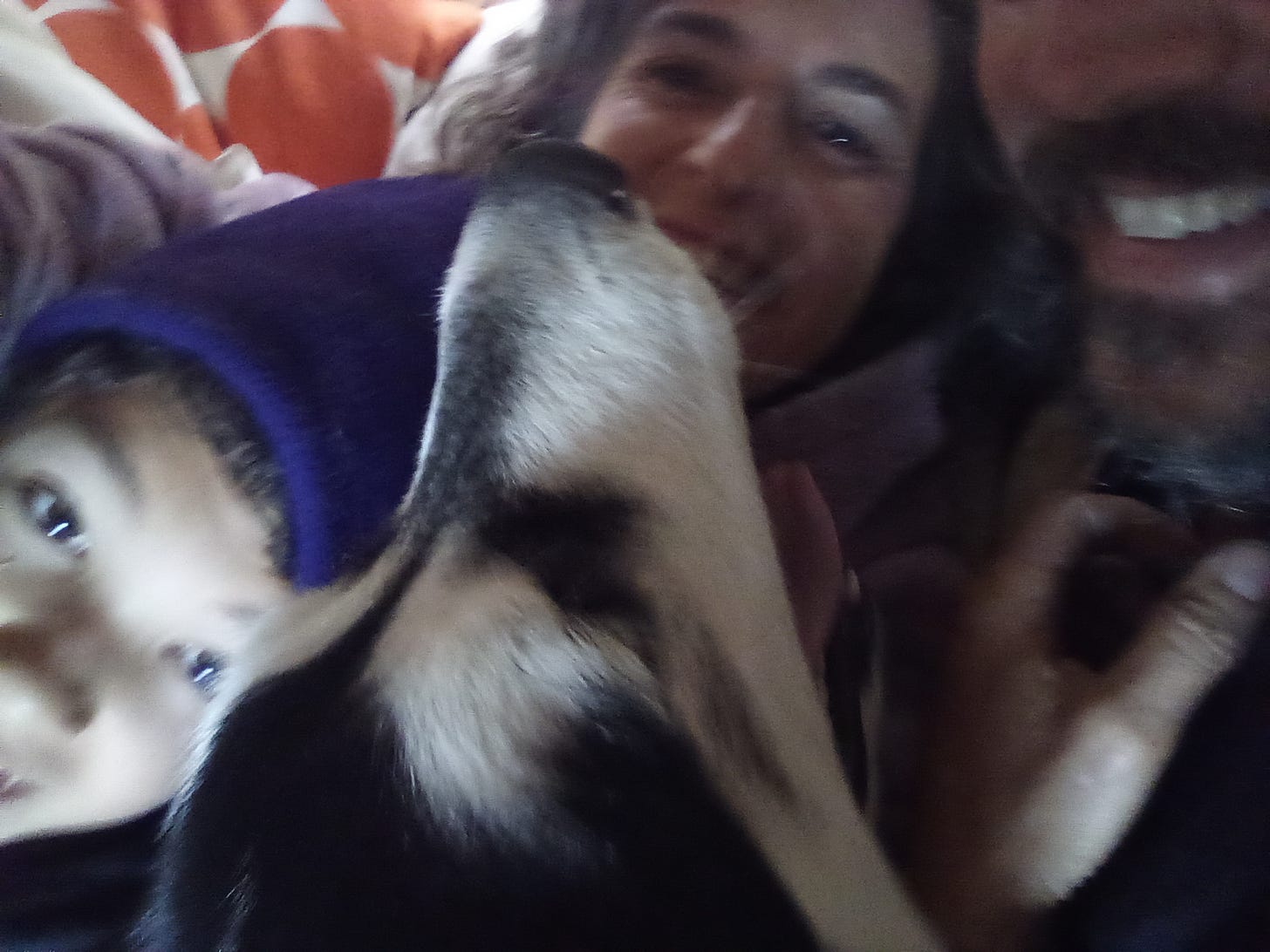
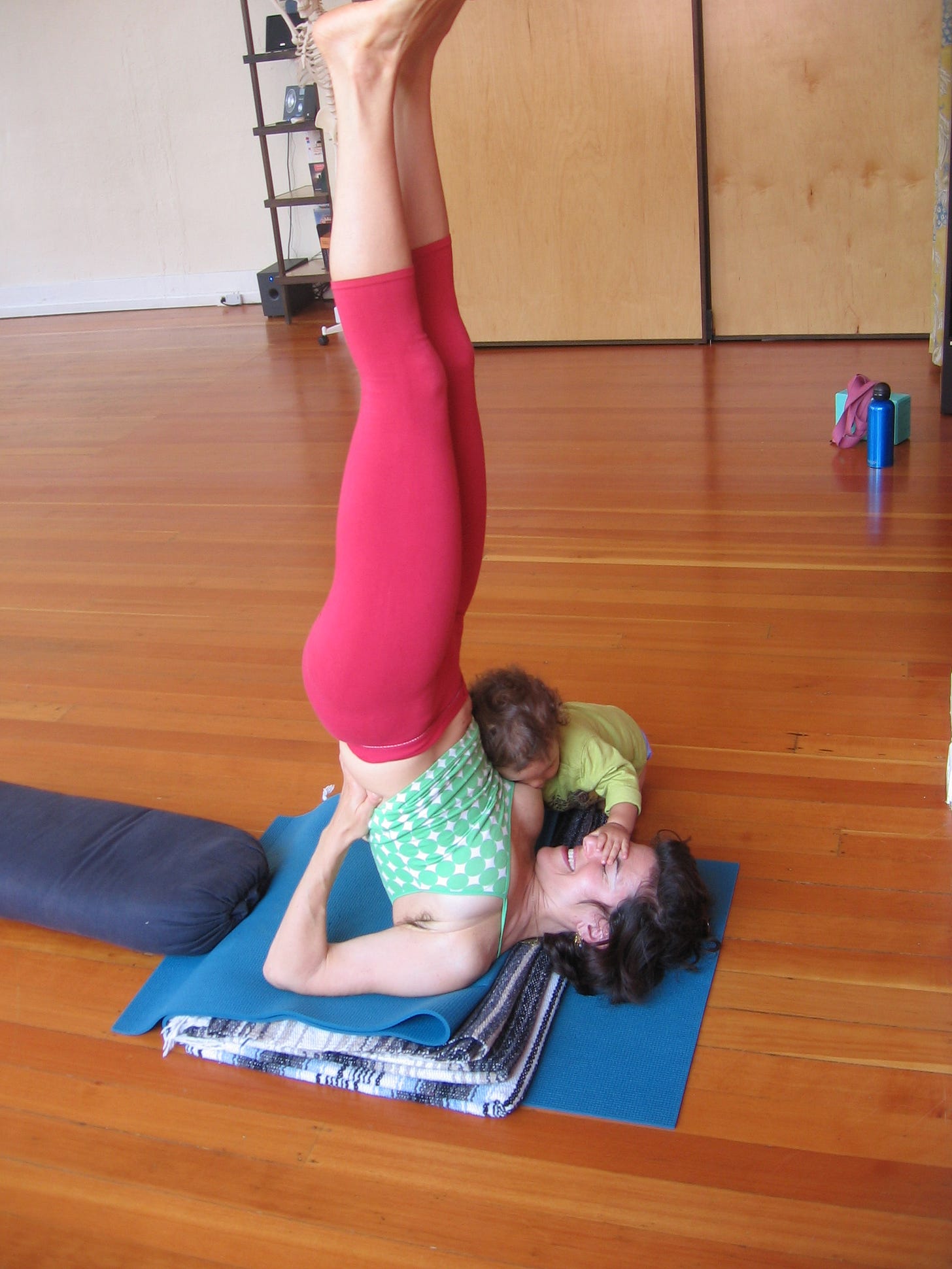
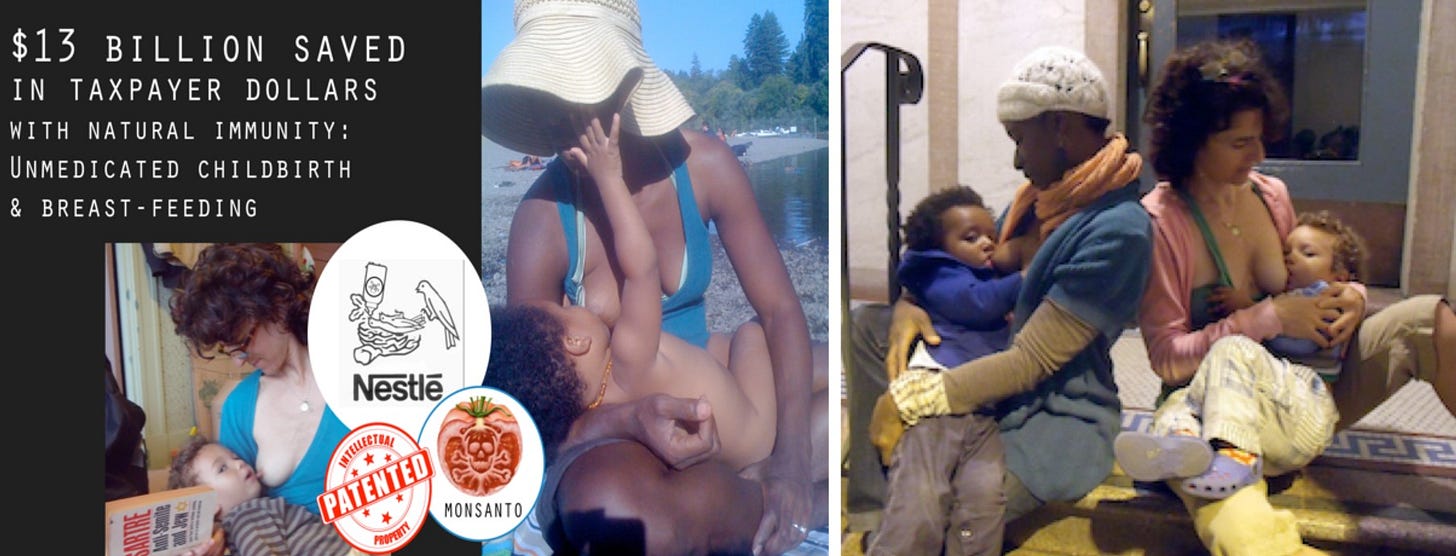

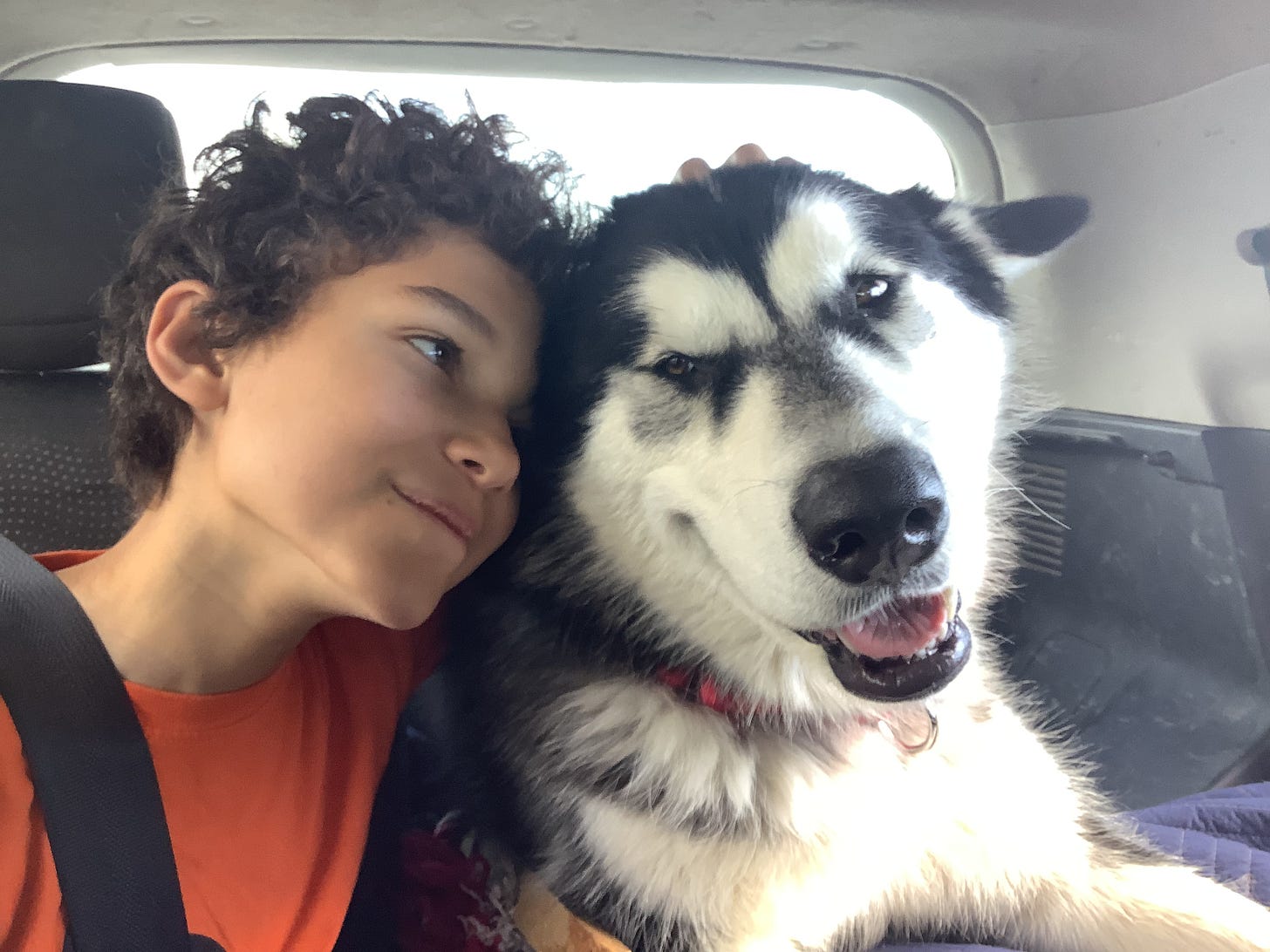
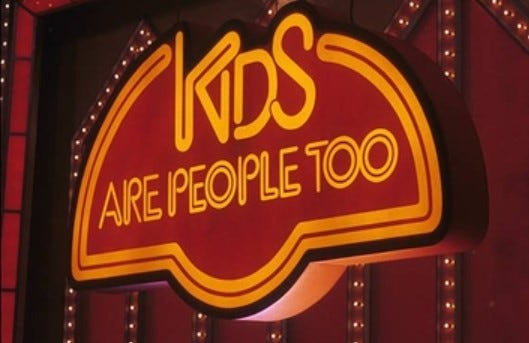
Please re-record audio reading. It has a bit of static in it making hard to understand